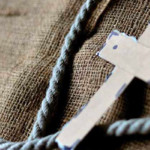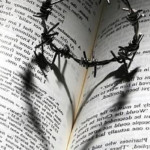Dear brothers and sisters, we have just passed the halfway point of our Lent. We should evaluate what this halfway point has been. Have we been faithful to the resolutions and commitments made at the beginning of Lent? Have we even made any? What do we need to do now for the rest to truly prepare for Easter?
It is not late, for the Word of God tells us that this Sunday, God is rich in mercy. In other words, if we come back to him with heart and soul, he will give us his love, he will pull us out of the mud we are in and give us the chance to get back on the right path.
The first reading is a chronicle of the history of Israel at a time when it is the object of God’s mercy. Israel threatened to disappear as a nation. The people have multiplied infidelities and abominations, imitating pagan nations. God sent prophets to bring them to order. They seized some to kill them and exiled others. God abandoned them in the hardening of their hearts. Nebuchadnezzar, king of Babylon, seized Jerusalem, destroyed the temple, and deported the living force to Babylon. But in exile, thanks to the meditation and teachings of the prophets Ezekiel, the proto-Isaiah and Jeremiah, the people recognized their sin and decided to return to the Lord. God chose King Cyrus of Persia to overthrow the kingdom of Nebuchadnezzar and restore freedom to the Jewish people who returned to their land after 49 years of exile. All this is the fruit of God’s mercy.
We have around us people who have compromised themselves in serious faults and wonder if God can still forgive them. Saint Paul who tells us that God is rich in mercy is himself the fruit of God’s mercy. Having benefited from his mercy for himself, he meditated at length on this mercy and can declare: “But now the goodness of God, our Savior, and his love for mankind has been made manifest, for he saved us not because of our merits and good works, but out of pure mercy” (Titus 3:4-5).
The Gospel alludes to another situation that happened to the Jews when they crossed the desert to the Promised Land. The people recriminated against God and Moses because of thirst and hunger. To correct them, God sent snakes with burning bites and some died. They acknowledged their wrongdoing and begged Moses to intercede for them. God commanded Moses to erect a bronze snake on a mast so that whoever was bitten by the burning snake would look to the bronze snake and be healed. In biology and medicine vaccines are made from the pathogenic germs that cause disease. Likewise here, the snake kills but the gaze on the bronze snake heals. This snake always reminds me of the emblem of the pharmacies where on a stick is coiled a snake. The snake’s venom can be effective medicine.
Christ in the Gospel compares himself to this snake: “As Moses lifted the bronze serpent in the wilderness, so must the Son of Man be lifted in the same way so that everyone who believes may obtain eternal life. He will be hanged on the cross in Jerusalem just as Moses’ bronze serpent. He will bear our sins upon him and save us from the eternal damnation that weighs upon us. The Apostle Paul illustrates this beautifully in the second reading: “We were dead of our sins, and he has made us live again with Christ: he has saved you out of pure goodness! In Christ Jesus, he raised us up with him to make us sit with him in the world above… he wants to show in the times to come all his extraordinary generosity”.
There is no unforgivable fault before God. If the sinner agrees to make light in his life, God will remove all his sin. The example of the good thief is obvious. From the darkness of Good Friday, from the cross, the supreme object of the curse, the light of resurrection has come forth. This light has transformed the cross into an object of blessing. Whoever fixes Christ on the cross obtains grace for his sins like a prisoner condemned to death who enjoys the amnesty of a monarch.




